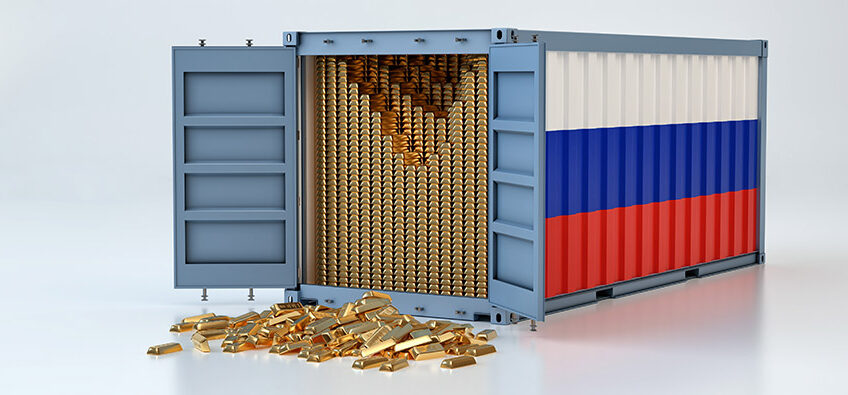
Russians Rushing to Buy Gold

Demand for gold by the Russian people is so overwhelming that the country’s central bank has backed away from buying so that the people’s demand can be met.
Here’s the lead from a March 15 Reuters account:
The Russian central bank said it will suspend the buying of gold from banks from Tuesday to meet increased demand for the precious metal from households, its latest attempt to weather the storm on Russian markets in the face of Western sanctions.
“Currently, households’ demand for buying physical gold in bars has increased, driven, in particular, by the abolition of value-added tax on these operations,” the central bank said in a statement….
The central bank, which will next meet on rates on Friday, has also been holding daily repo auctions as lending institutions scramble to manage their liquidity.
The bank said it would suspend its gold purchases from banks from March 15, without saying how long the change would last.
Russia is not the only country that has supported the desire of its people to protect themselves with gold. China has become a power player in the global gold market, generally encouraging its people to own gold. China is not only the world’s leading gold producer. It is widely reported to have the world’s largest gold reserves. In addition to reserves held by the People’s Bank of China, gold is presumably also held in accounts of the Chinese army and several of the communist party organizations.
Russia is second only to China in gold production, followed by Australia.
The United States is in fourth place.
Russia’s ruble has tumbled with the invasion of Ukraine. The currency’s fall has led Russians to convert their ruble holdings into hard assets. Luxury goods, watches, and other jewelry have been flying off shelves. They are a poor substitute for gold, the world’s most liquid commodity. But as inflation continues to climb, at some point people become anxious to convert their failing currency into any tangible good.
Ludwig von Mises calls a breakdown of this kind the crack-up boom:
A breakdown occurs. The crack-up boom appears. Everybody is anxious to swap his money against ‘real’ goods, no matter whether he needs them or not, no matter how much money he has to pay for them. Within a very short time, within a few weeks or even days, the things which were used as money are no longer used as media of exchange. They become scrap paper. Nobody wants to give away anything against them.
It was this that happened with the Continental currency in America in 1781, with the French mandats territoriaux in 1796, and with the German Mark in 1923. It will happen again whenever the same conditions appear. If a thing has to be used as a medium of exchange, public opinion must not believe that the quantity of this thing will increase beyond all bounds.
With Washington having printed $4.7 trillion in two years and spending $5 trillion in deficit stimulus, double-digit inflation was the predictable result.
Can a US dollar crack-up boom be far off?
